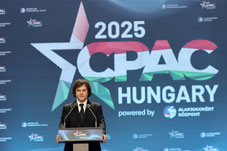Polish and French Embassies Warn Citizens of Entry Risks to Georgia

Later that day, the French Embassy issued a similar statement, advising travelers to check for any factors that could put them at risk of being refused entry, including involvement in demonstrations and online activity.
These advisories follow a series of incidents over the past year where foreign nationals, including journalists, activists, and politicians, have been denied entry into Georgia. The situation has intensified amid ongoing protests since November 2024. Notably, on May 21, Simon Vanderbroucke, a member of the EU Delegation to Georgia, was denied entry at Tbilisi International Airport, marking the first reported case of an EU diplomat being refused entry. Georgian Dream authorities attributed the incident to a "technical problem."
The advisories also come in the context of proposed legislative amendments aimed at tightening immigration controls. Under these amendments, foreigners could be expelled from Georgia and barred from re-entering for administrative offenses such as petty hooliganism and disobedience to police. The Interior Ministry has indicated that foreign participants in protests will be particular targets of these changes.
Georgian Prime Minister Kobakhidze Meets with Orbán at CPAC

During their meeting, Kobakhidze expressed gratitude for Hungary's support of Georgia's European integration and emphasized the growing partnership between the two nations. He praised Orbán for his unwavering defense of Hungary's sovereignty and national interests.
In his CPAC speech, Kobakhidze portrayed Georgia as a nation with a rich Christian heritage, asserting its commitment to preserving national identity and faith. He criticized what he termed "liberal fascism," accusing foreign-funded NGOs and media of undermining traditional values and promoting divisive ideologies. He also alleged that a "deep state," which he referred to as the "Global War Party," orchestrates global unrest and seeks to erode national sovereignty.
Kobakhidze reiterated Georgia's commitment to European integration but insisted that this path should not compromise the country's dignity or sovereignty. He condemned perceived double standards and emphasized the importance of national identity in the face of external pressures.
